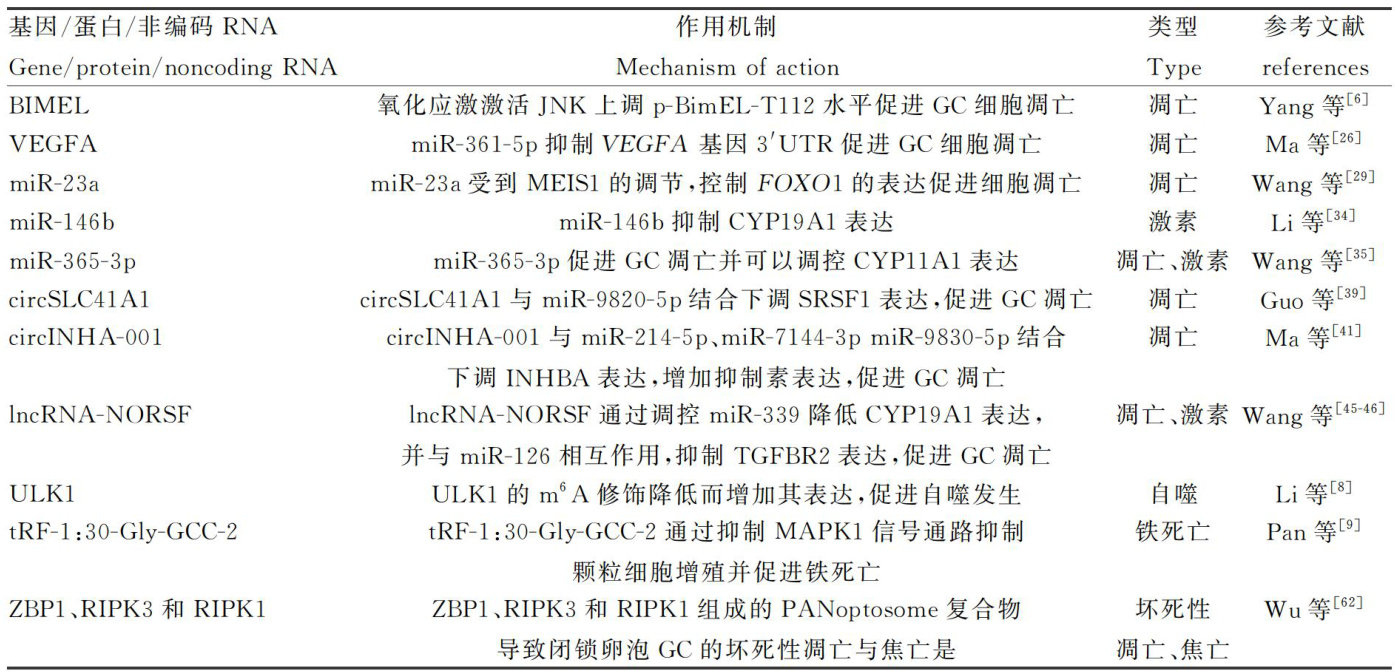猪颗粒细胞在卵泡闭锁中的作用机制研究进展


打开文本图片集
中图分类号:S828.3 文献标志码:A 文章编号:0366-6964(2025)06-2537-09
Research Progress on the Mechanism of Porcine Granulosa Cells in Follicular Atresia
ZHAO Shunran,FU Guixin,PANG Zhaoqi,XIA Wei,LI Junjie,TAO Chenyu*College of Animal Science and Technology, Hebei Agricultural University, Baoding O71ooo, China)
Abstract: Despite the significant advancements in China’s animal husbandry sector, enhancing the reproductive capacity of livestock and poultry still remains a relentless pursuit for breeding farms.Follicular atresia,which refers to the non-ovulatory follicles,is extremely common in livestock and poultry and has become a significant factor constraining their reproductive capabilities,thus attracting increasing attention. Granulosa cells, as a key factor affecting follicular atresia,play a crucial role in the process of folicular atresia. Currently,most research findings indicate that the proliferation of granulosa cells can influence the development of follicles,while apoptosis of granulosa cels can lead to follicular atresia. However, the underlying mechanisms still require further exploration. This paper discusses the roles of granulosa cells in apoptosis,autophagy,ferroptosis, pyroptosis, and necroptosis, providing new perspectives and insights into the complex mechanisms of follicular atresia.
Keywords: pig; granulosa cells; follicular atresia; apoptosis; autophagy; non-coding RNA ∗ Corresponding author: TAO Chenyu,E-mail : taochenyuty@163.com
卵泡闭锁是指没有达到优势卵泡并无法排卵的卵泡,闭锁卵泡中卵母细胞逐渐退化,颗粒细胞与卵母细胞慢慢地变成纤维体被卵巢吸收[1]。(剩余19961字)